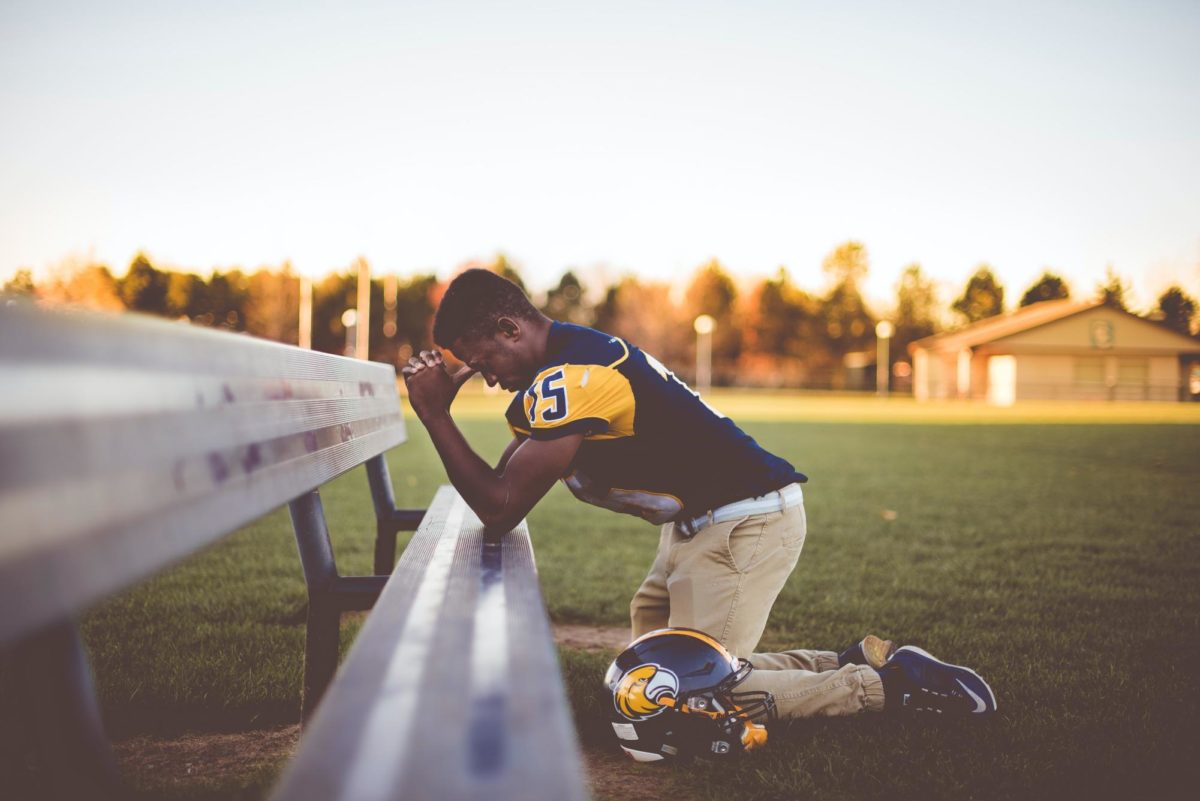Waking up in the morning packing both your school bag and duffle bag. Later, arriving at school and spending eight hours of the day worrying about what you need to do for the day. You leave early from school to go to a meet and you perform to the best of your ability but you slowly become drained and distracted. You come home late forgetting to eat and rush to finish homework and end up falling asleep. You wake up in the morning once again only to come to school where people shame you and your performance and your teachers can not begin to comprehend that you are exhausted so shut down and begin to feel apathetic.
An athlete’s mental health should be important. Although you perform a sport and you are considered healthy that doesn’t mean you are immune to feeling depressed or anxious.
According to the CDC,“ 3.06 percent of women and 20.48 percent of men have committed suicide due to the lack of resources and conversation of athlete’s mental health.”
Many Olympic athletes such as Simone Biles, Naomi Osaka, Sha’carri Richardson, and Justin Duchscherer are athletes who dropped out at the last minute to focus on their mental health. When it became time for these athletes to make a comeback, they excelled tremendously.
Greensboro College’s wide receiver, Adam Evans feels that focusing on your mental health over sports is the best choice to make.
“I feel it is important because if you let it build up and overflow then in the end you will be more stressed and have more issues.” Said Evans
No matter what type of sport or event you participate in, sometimes you struggle physically and mentally. We are all human and it is easy to be exhausted or overwhelmed. UACHS volleyball and track and field shot putter, Dayvia Hickson explains the many things that happen to these athletes who are struggling.
“Some side effects of being a student-athlete or just an athlete in general can be substance abuse, an eating disorder, depression, anxiety and those are not things children should be going through,” Said Hickson.
The audience watching your game is sometimes supportive but in some cases, many spectators shame the athlete which makes them feel incompetent. Although coaches are there to assist you through your sport, sometimes they are the ones projecting those negative comments.
“Another thing we should talk about is the coaches that make your mental health worse,” said Hickson. “Sometimes you feel limited to certain things just because you’re not strong enough, you’re not good enough for that sport, or they want to keep you in one spot where they think you’ll win, even if it’s not what you want to do.”
As an athlete, many people fail to forget that you are human. When people make this comment it may make an already overwhelmed athlete feel worse and can lead to rash decisions. You as a person never know what the athlete is experiencing after school or even behind closed doors. As an athlete, you should know that you’re never alone, there are an abundance of different hotlines and trusted adults or friends you could talk to. If you ever are having suicidal thoughts or just down visit the National Collegiate Athletic Association (NCAA) or the Substance Abuse and Mental Health Service Administration (SAMHSA) for more ways to deal with the struggles. REMEMBER that being a student-athlete is a struggle within itself and that YOU ARE NEVER ALONE through this tough time.






